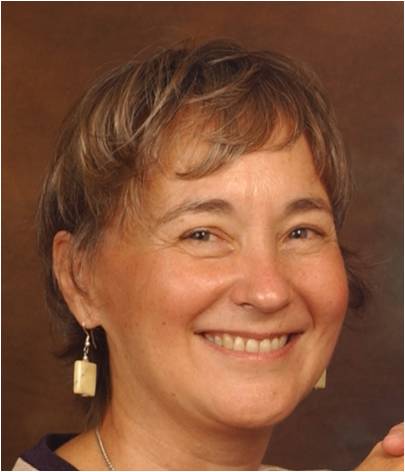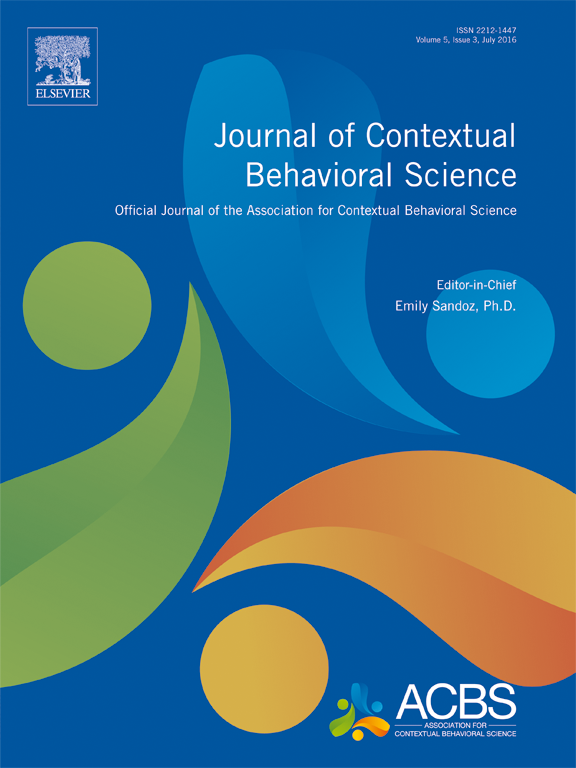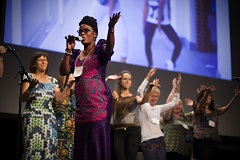|
ACBS Newsletter, September 2017
|
|
ACBS Grant Applications Accepted Ending October 15th
Are you a researcher or student searching for a funding source for any contexual behavioral science-related project? ACBS provides two grants, up to $5,000 USD, for research that advances the field of contextual behavioral science through Research Development Grant applications approved by the ACBS Grant Committee, chaired by JoAnne Dahl, Ph.D. Projects eligible for the grant are relatively broad, as any topic within the array of CBS will be considered. To learn more about previous research that has been awarded the ACBS Research Development Grant, please check out our most recent winners here. The call for Grant applications will be open September 1 - October 15, 2017, and awards will be announced on November 30th. Best of luck! |
|
New Version of the IRAP Software AvailableFor those of you interested in conducting basic RFT research, we are delighted to announce that a new version of the IRAP has been made available to researchers! The Ghent-Odysseus Implicit Relational Assessment Procedure (GO-IRAP) has been designed to be both easy to install and user-friendly for setting up. The program includes features such as training and testing IRAPs, options for using text or images as labels, targets, and response options, and support for traditional (label + target) and natural language (sentence-based) IRAP formats. The GO-IRAP software and manual are freely available to download for ACBS members here. Please note that bug-testing for the software is still ongoing, and any errors in the program or inaccuracies in the procedure should be sent to the appropriate parties (included in the IRAP instructions). Special thanks to Dermot Barnes-Holmes and the rest of the team at Ghent University for all of their tireless work! |
|
ACBS and the Aging Population
Many of us are aware of the growing numbers of geriatric populations across cultures worldwide, and the shortage of health care workers in the geratric sectors. Moreover, care needs of geriatric individuals are often greater than younger cohorts, and many individuals over the age of 80 experience symptoms of cognitive decline, and are marginialized both economically and socially. In this talk presented at the 14th annual ACBS conference, Susan McCurry describes how psychological and behavioral interventions for older adults have changed over time, and discusses how the focus on contextual factors underscored by contextual behavioral science places the ACBS community in a unique position to revolutionize geriatric and dementia mental health care, both at the individual level of care delivery and the societal level via policy and community-based interventions. We also invite you to look through some of the other videos we have available on our Videos page, which includes talks from previous ACBS conferences, interviews with fellow ACBS members, TED talks, and more! |
|
Changes in Valued Behaviors and Functioning through ACT
A key component in Acceptance and Commitment Therapy is to get clients to become more aware of their values, and to change their behaviors such that they are able to live in directions consistent with said values in spite of barriers that may come up along the way. In this recent study of treatment-resistant panic disordered individuals, Hanna Wersebe and colleagues found that the difference in participants' self-reported importance of various values domains and their engagement in values-relevant behaviors decreased through treatment, suggesting that this discrepancy may be an important point to monitor and target. Moreover, the researchers compared changes in social and non-social values domains and found significantly higher activity in social domains in their sample. Decreased valued living discrepancy in social domains was a significant predictor of post-treatment functioning. To read the full study, or any other studies published in JCBS, please visit the ACBS member portal to JCBS here. If you would like to contribute to JCBS, please see our submission information page. If you would like a better resource to cite JCBS content, see our JCBS reference sharing page which includes a downloadable Endnote file for all published and in-press JCBS articles. |
|
ACBS Developing Nations Training Fund Recognition
The ACBS Developing Nations Training Fund received a surprise acknowledgement in a recent issue of the Associations Now online magazine, published by the ASAE. In particular, they different funding methods and scholarship programs implemented by associations to improve access and conference attendance, and highlighted the Developing Nations Training Fund as an example that other organizations could implement. The complete article can be freely accessed here. ASAE is a membership organization of more than 39,000 association executives and industry partners representing more than 7,400 organizations. Its members manage leading trade associations, individual membership societies, and voluntary organizations across the United States and in nearly 50 countries around the world. We at ACBS are proud to be leaders in promoting diversity within our organization, and extend a heartfelt thank you to the Developing Nations Committee, and to all the generous donors who have made this program possible. To keep these important scholarships a part of our ACBS programming, please consider donating here. |
|
Submitting Items to the Newsletter and Social Media!Do you have something newsworthy for ACBS to share? If you have any ideas for articles or Q&A sessions that you would like to see included in the next ACBS newsletter or on our social media, please submit them via e-mail to [email protected]. We would love to share your community projects, research findings, outreach programs, and other relevant news to the ACBS member base! |
|
Connect. |
See you at the Montreal, Canada, World Conference! To be helf July 24-29, 2018. Go here for more information. |
 |
You are receiving this newsletter because you are a member of ACBS.
If you no longer wish to receive these emails, you can remove yourself from them by clicking here:
{action.optOutUrl}
If this link does not work for you, email your unsubscribe request to [email protected].
{domain.address}





